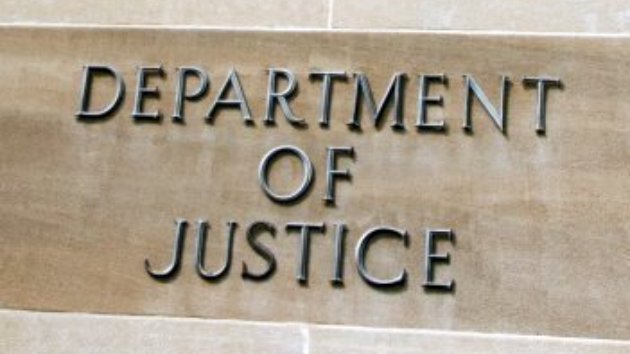MOSCOW, October 8 (RAPSI, Ingrid Burke) - The government shutdown is taking its toll on the US federal judiciary, as prosecutors have been instructed by the US Department of Justice(DOJ) to take various steps in light of the government shutdown, according to a report released Monday by the US Courts’ official news outlet, The Third Branch News.
On September 30, Director of the White House Office of Management and Budget Sylvia Burwell released a memo to the heads of the executive departments and agencies announcing, “Unfortunately, we do not have a clear indication that Congress will act in time for the President to sign a Continuing Resolution before the end of the day tomorrow, October 1, 2013. Therefore, agencies should now execute plans for an orderly shutdown due to the absence of appropriations.”
Initially the federal judiciary announced in September via The Third Branch News that it would remain open, at least temporarily in the case of a shutdown: “In the event of a government shutdown on October 1, 2013, the federal Judiciary will remain open for business for approximately 10 business days. On or around October 15, 2013, the Judiciary will reassess its situation and provide further guidance.”
The US Department of Justice (DOJ) issued a memorandum on September 30, however, establishing guidelines for US Attorneys in light of the shutdown.
The memo lays out the following guidelines for US Attorneys: “As Presidential Appointees, U.S. Attorneys are not subject to furlough. Excepted employees are needed to address ongoing criminal matters and civil matters of urgency throughout the Nation. Criminal litigation will continue without interruption as an excepted activity to maintain the safety of human life and the protection of property. Civil litigation will be curtailed or postponed to the extent this can be done without compromising to a significant degree the safety of human life or the protection of property. If a court denies a litigator’s request to postpone a case and orders it to continue, the litigation will become an excepted activity that can continue during the lapse. Headquarters support will be maintained only to the extent necessary to support current operations.”
The DOJ memo stipulated a game plan in the event of a five-day funding hiatus, noting that it would need to revisit its strategy if the shutdown were to endure for longer than five days. So far, it’s been a week.
The Third Branch News reported Monday that as a result of the memo, US attorneys have been filing motions to stay litigation one case at a time. The report quotes a typical motion as follows: “Absent an appropriation… Department of Justice attorneys and employees are generally prohibited from working, even on a voluntary basis… This is creating difficulties for the Department to perform the functions necessary to support its litigation effort.”
Several judges have reacted as well. Chief Judge Loretta Preska of the US District Court for the Southern District of New York issued an order dated October 1 staying all civil cases in which the US Attorney for the district has appeared as counsel – excepting civil forfeiture cases – until the business day following the restoration of DOJ funding.
Meanwhile, not all requests by US Attorneys are being honored. US District Judge Colleen Kollar-Kotelly issued an order dated October 1 refusing to grant a stay as requested by prosecutors on the basis of the loss of appropriations. According to the order: “The Court concludes that a stay would be inappropriate here for a number of reasons… This case involves a pending merger agreement between two major airlines, with a deadline for completion of January 18, 2014… A stay at this point would undermine this schedule and delay the necessary speedy disposition of this matter. It is essential that the Department of Justice attorneys continue to litigate this case.”
Such refusal is provided for in the DOJ memo, however, which asserts: “If a court denies a litigator’s request to postpone a case and orders it to continue, the litigation will become an excepted activity that can continue during the lapse.”
The US Government’s website provides an overview of services and operations that have been impacted by the shutdown, and that will remain less than ideally functional “until Congress passes a budget to fund them again.”
As explained by the Government, among other things: funds fueling services aimed at providing the very young and the very old with healthy food may run out in the case of an extended lapse; services aimed at helping veterans understand their benefits will be closed to the public; consumer protection work will cease, impacting a number of spheres, “ranging from child product safety to financial security to the safety of hazardous waste facilities,” and “[e]very one of America’s national parks and monuments, from Yosemite to the Smithsonian to the Statue of Liberty, will be immediately closed.”
Furthermore, the federal workforce has been impacted – with hundreds of thousands – “including many charged with protecting us from terrorist threats, defending our borders, inspecting our food, and keeping our skies safe will work without pay until the shutdown ends” – working without pay, and hundreds of thousands of others being “immediately and indefinitely furloughed without pay.”



